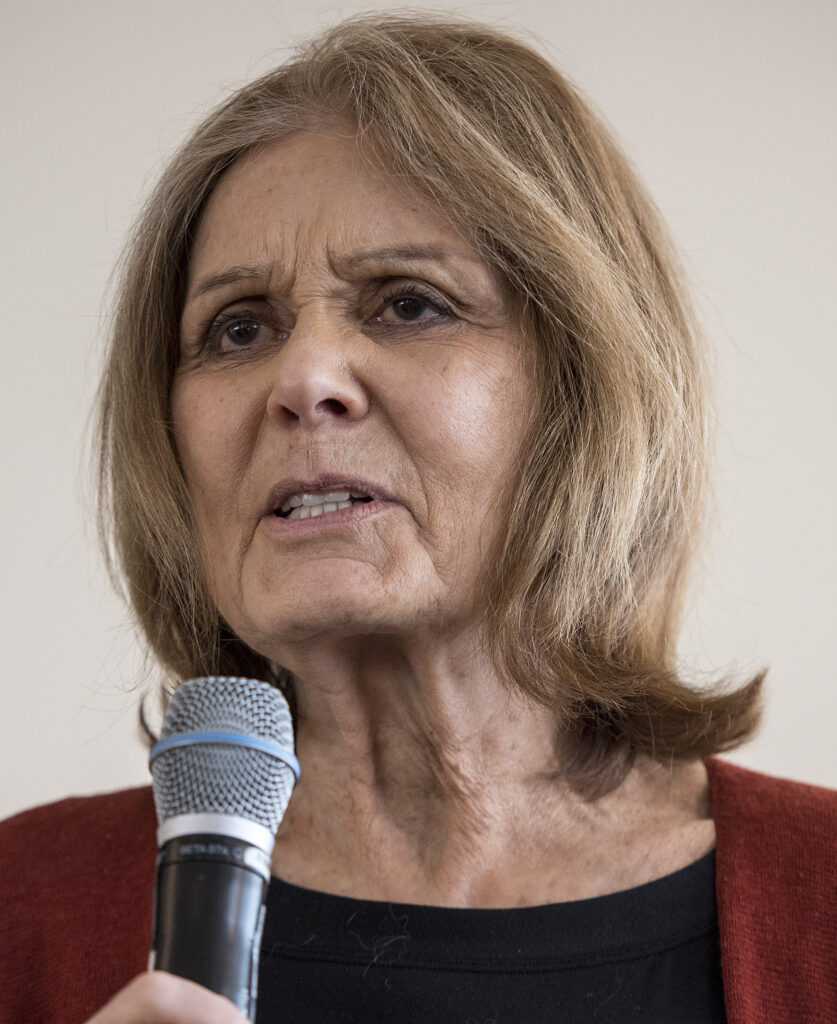Gloria Steinem

Credit: NARAL Pro-Choice America
Licence: Creative Commons Attribution 2.0 Generic
4 February 2018, 13:56
| Giver: | Individual |
|---|---|
| Receiver: | - |
| Gift: | Voice/Advocacy |
| Approach: | Other |
| Issues: | 5. Gender Equality |
| Included in: | Social Activism |
Gloria Steinem is an acclaimed American feminist activist, organizer, lecturer and writer. An iconic figure in American second-wave feminism, she has consistently emphasized the moral and strategic importance of women’s solidarity across racial, economic, class and generational lines. As founding president of the Ms. Foundation for Women, Steinem led unprecedented efforts to leverage philanthropic funding for grassroots women’s organizations. Widely known for the spirit of generosity, inclusivity and good humor that she has brought to the fight for women’s empowerment and gender equality, Steinem received the Presidential Medal of Freedom, the highest civilian honor awarded in the United States, in 2013.
Gloria Marie Steinem was born in Toledo, Ohio, in 1934. She attended Smith College, graduating Phi Beta Kappa in 1956. A fellowship enabled her to spend two years in India, where she was deeply inspired by Gandhian activists who used talking circles (egalitarian and nonconfrontational forums for discussion or storytelling) to build mutual understanding and trust among engaged disenfranchised rural villagers. Steinem later adopted the talking circle as a model for her feminist organizing work in the U.S.
Steinem began her professional career as a freelance journalist in New York in the early 1960s, but struggled to gain traction as a serious reporter in the male-dominated field. In 1968 she became a founding editor of New York magazine, gaining an outlet for her reporting and reflections on political and social topics. In 1969 New York published Steinem’s “After Black Power, Women’s Liberation,” in which she argued that the Women’s Liberation Movement (WLM) must include all women, regardless of race or class, to achieve its goals. This groundbreaking piece elevated Steinem to national prominence in the feminist movement.
In 1972, Steinem co-founded Ms. magazine, the first American feminist periodical of its kind. Edited and written by women and distributed nationally, Ms. gave new voice to issues of consequence for women’s lives -- including reproductive freedom, equal pay, sexual harassment and domestic violence. In 1973 Steinem and others established the Ms. Foundation, a philanthropic vehicle to support grassroots feminist initiatives.
Throughout her career, Steinem understood that accomplishing the broad and diverse goals of an intersectional feminist agenda would require significant collaboration and cooperation across many factions and identities within the movement. To this end, she used her apartment in New York City as a gathering space for women to share stories, exchange ideas, hatch plans, fundraise and build community.
In 2016 Steinem established Gloria’s Foundation, a philanthropic entity dedicated to nurturing the evolving feminist movement -- in part by maintaining Steinem’s famous New York apartment as a center for feminist organizing and mutual support. Still active in her eighties, Steinem often attests to the power of empathy – “the most radical tool we have,” as she describes it – to build alliances for the advancement of social justice. The legacy of Steinem’s generosity continues to inform and energize feminist activism today.
Contributors: Maha Tazi, Erin Brown
| Source type | Full citation | Link (DOI or URL) |
|---|---|---|
| Book |
Heilbrun, Carolyn G. Education of a Woman: The Life of Gloria Steinem, Google Books, 2011 |
ISBN 9780307802132 |
| Book |
Lazo, Caroine. Gloria Steinem: Feminist Extraordinaire. Lerner Publications, 1998 |
- |
| Book |
Nussbaum, Martha C. Sex & Social Justice. New York: Oxford University Press, 1999: 118–129 |
- |
| Book |
Sarah Fabiny; Max Hergenrother; Nancy Harrison. Who Is Gloria Steinem?. Penguin Group US, 2014 |
- |
| Publication |
Steinem, Gloria . “Gloria Steinem, After Black Power, Women’s Liberation”. New York Magazine, 1969 |
- |
| Publication |
Zernike, Kate “Rutgers to Endow Chair Named for Gloria Steinem”. The New York Times, 2-14 |
- |